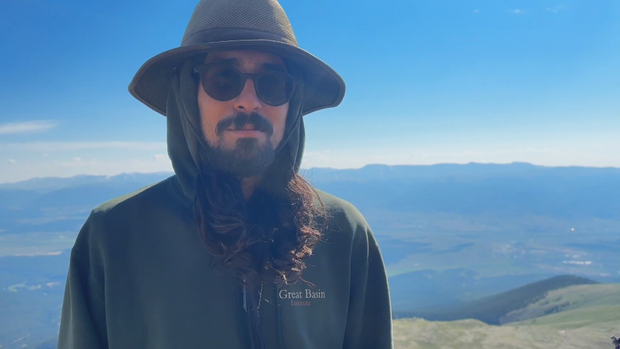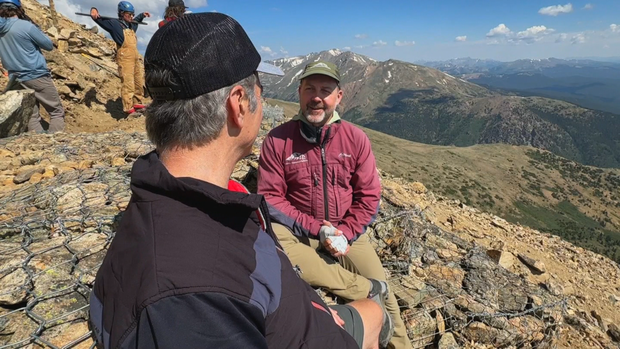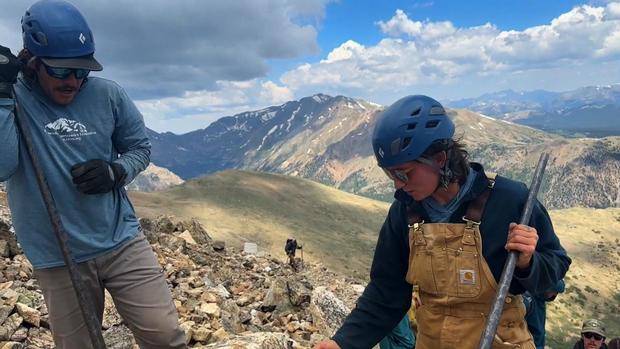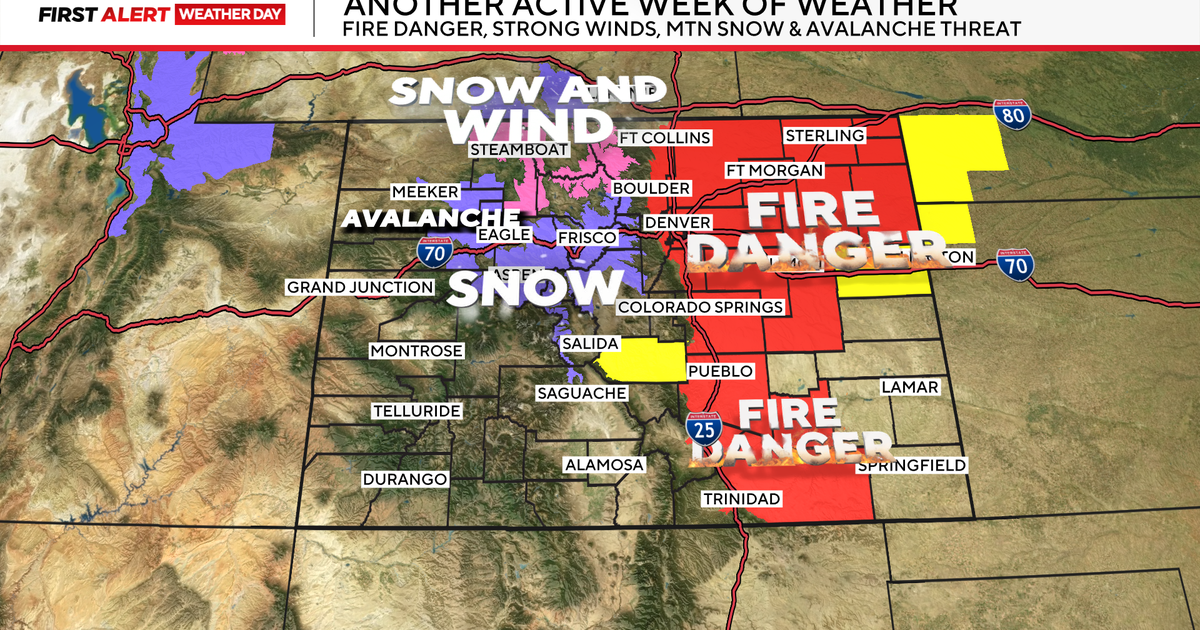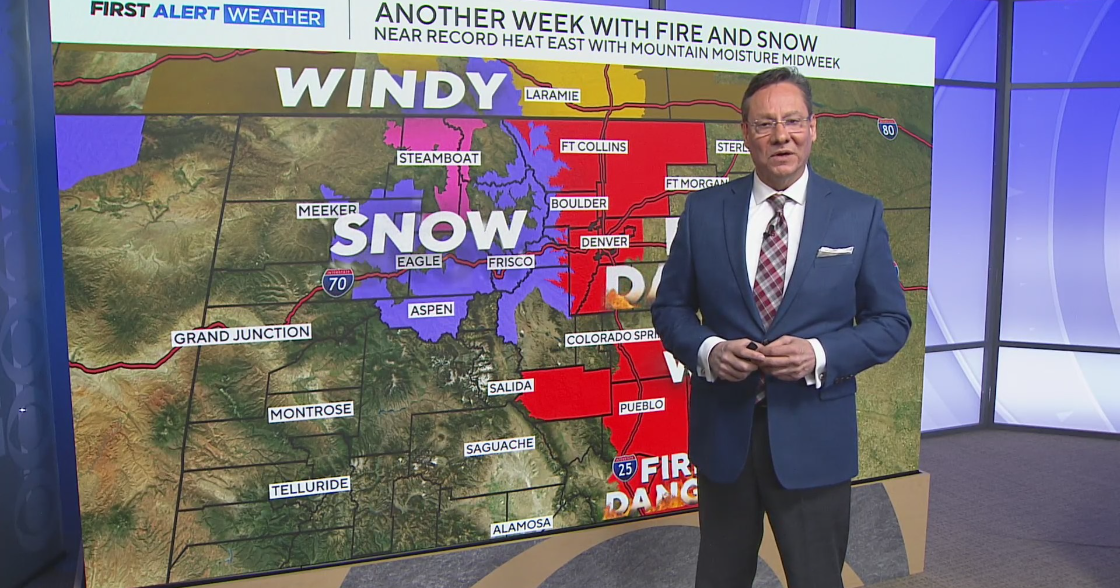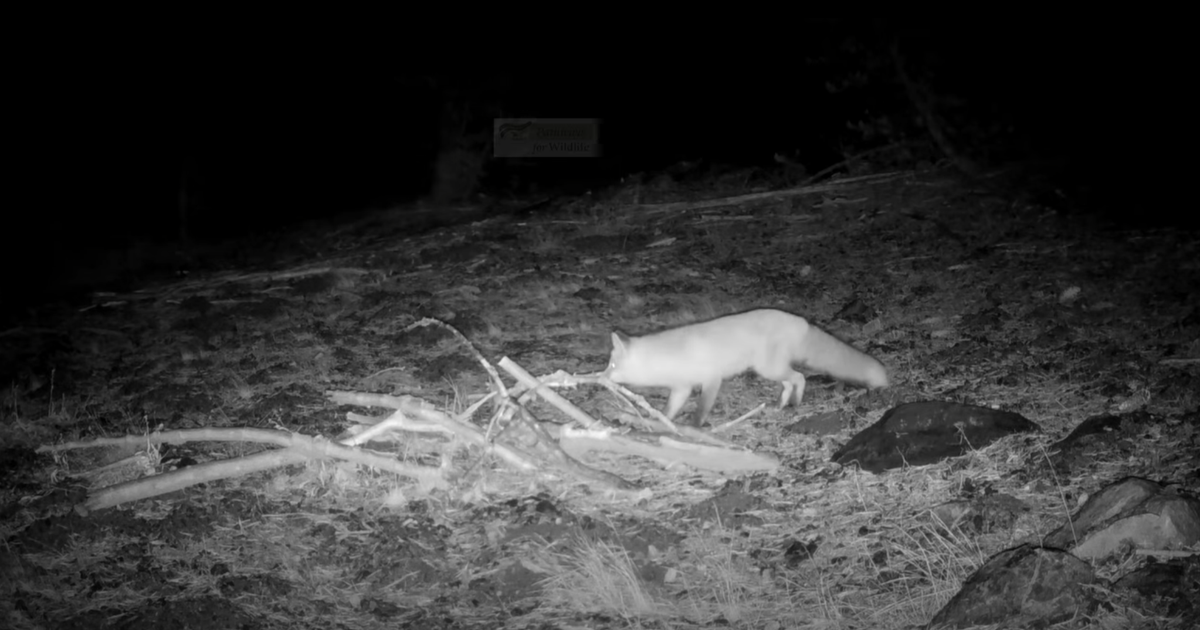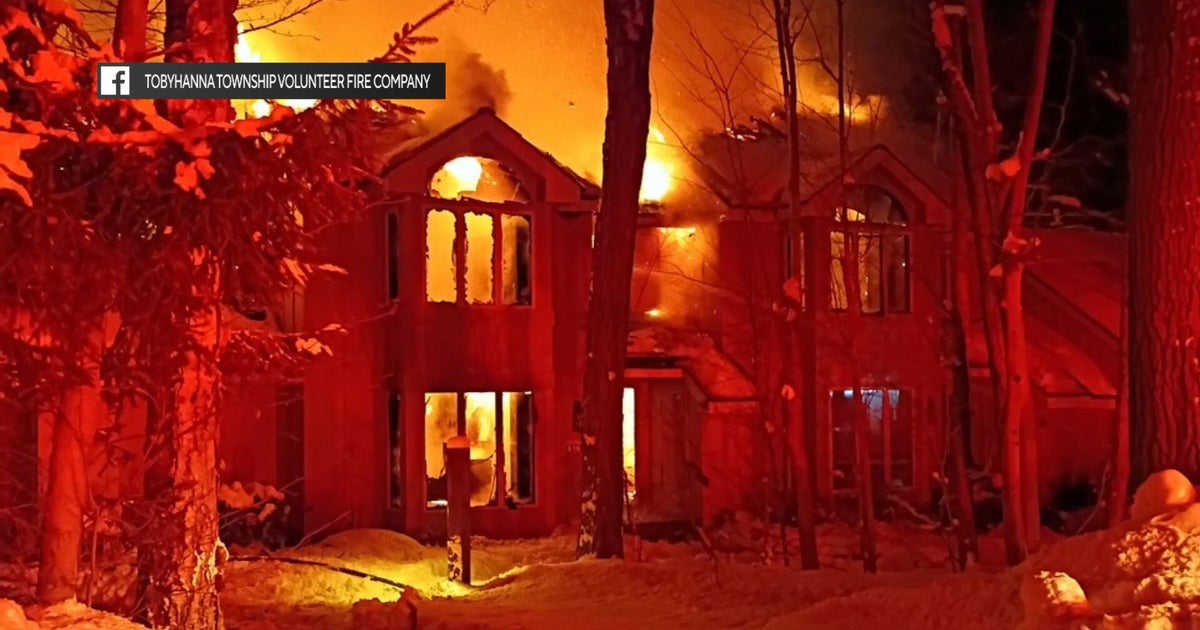Young workers do heavy work high on Colorado's tallest mountains
No climb up any 14,000-foot mountain in Colorado is easy. And on a warm day starting with blue skies, workers with the 14ers Initiative and Rocky Mountain Youth Corps are at it early. They camp at high altitude, then gather their tools in the morning and hike up through the trees reaching the rocky slopes of Mt. Elbert well above timberline at 13,600 feet.
These young workers have helped blaze dozens of trails on Colorado's 14ers -- many more than existed even just 30 years ago.
"We're sort of like Sisyphus, you know, pushing the rock up the hill," laughs Lloyd Athearn, executive director of the Colorado 14ers Initiative.
It's grueling work, prying and hauling large rocks to create new trails, but there are few complaints.
"I definitely, for the first week of training, was getting lightheaded and nauseous," said Samir Gulati, of Las Vegas. Their conditioning rapidly improves. And the crews grow tighter over the summers as they work on the slopes. The camaraderie is strong.
"I love doing this it's like one of the only jobs you can get paid to hike and paid to work in these beautiful places," said Heather Johnson, who came to Colorado for the work. "We're trying to build a retaining wall right here. Because if you can see this is where the old trail is. And all the erosion is just sluffing all this dirt down. So we're trying to stop that."
The 14ers Initiative was created 30 years ago after a study showed how the fragile high terrain suffered from growing recreational use. The group was stitched together from other nonprofits, public agencies and individual donations. It's backed up today by a similar mix.
Many of the trails up Colorado's 50-plus 14ers, says Athearn, were developed socially, not planned. That can increase erosion and threaten fragile plant life.
"When it rains and when we have spring snowmelt, it just starts to take the soil away. It takes the rocks away," Athearn said. "And then people start looking to find more solid ground. They start trampling more vegetation, again it braids. And you can see areas where we haven't done work yet, significant swaths of impact."
Those areas are where the trails can have one or two or more paths. People seek the drier spots and soon widen the trails.
The 14ers Initiative workers, along with the workers of the Youth Corps, create better routes, building stairs in steep spots and choosing routes with the least impact.
"There aren't signs here saying hey this trail is built by Colorado 14ers Initiative. This is a non-profit. This is how you can support them. Some people think trail gnomes come out in the middle of the night and do this work," he shared.
In addition to the trail work, the 14ers Initiative tracks foot traffic on the mountain by installing equipment to count passing hikers. The data is important to gauge use of the trails.
When they started in 1994, there were only three intentional routes on Colorado's 14,000-foot mountains. The group has now created 40 trails on 37 of the highest peaks.
"The fundamental, overriding goal of Colorado 14ers is to get to the point where every one of our 14ers has a designed, intentionally built, sustainably planned trail," Athearn said.
They're glad to see people experiencing the mountains, as long as they respect the mountains.
"These are public lands. They belong to all of us. I think it's important that people who come here are responsible," Athearn said. "And in a society that's more and more screen-addicted and lacking in physical exercise, it's a good thing to get people out here."

